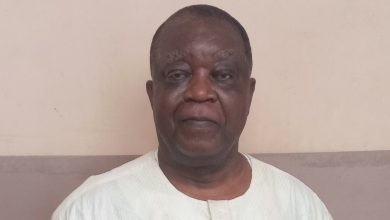The Times Fact Check: Dr. Kayode Olanorin’s Media Police

Media Police

Truth Watch is a public interest column dedicated to exposing false claims, spotlighting ethical concerns in journalism, and equipping the public with tools to navigate today’s fast-changing information landscape.
The feature is part of a wider effort to strengthen truth and accountability in media.
This week’s top false claims
No, Nigeria did not ban tomato paste imports – SON debunks viral hoax
This week, a fresh wave of misinformation again tested public trust. A viral WhatsApp and Facebook post claimed that Nigeria had banned all tomato paste imports due to “toxic preservatives.”
The rumour quickly spread through family groups and market circles, with some traders halting purchases out of fear. However, the Standards Organisation of Nigeria (SON) clarified in a press release on August 19 that what took place was merely a routine inspection of imported tomato concentrate shipments at Lagos ports.
Some consignments were flagged for quality checks, but there was no nationwide ban. Premium Times and Africa Check both confirmed that the audio and text messages misrepresented events.
Media ethics spotlight
Stations air political aids masquerading as news
Ahead of the 2027 elections, Nigerian TV and radio stations are facing scrutiny for airing
A fresh monitoring report titled “Political Advertising Disguised as Editorial Programming”—produced jointly by the Centre for Media Law & Ethics and the Nigeria Union of Journalists (NUJ)—found that over 30 broadcast segments aired in August were, in fact, political promotions presented as editorial news.
These segments were carried across both television and radio stations. This practice violates section 5.3.3 of the National Broadcasting Code (NBC) Code, which requires political content to be clearly labeled as paid or sponsored.
This is a critical failure of journalistic integrity. When broadcasters blur campaign messaging with news, they compromise the public’s trust. The NBC must swiftly enforce transparency through mandatory on-air disclosures and ensure ethical boundaries between news and political persuasion are restored.
Tool of the Week
TikTok truth challenge goes viral in Kano
In Kano, young people are proving that the battle against misinformation is not only for regulators or journalists—it’s a fight they can lead themselves. Through the #TikTokTruthChallenge, a youth collective called Yankasa Digital Voices is turning fact-checking into entertainment.
Their short skits, street-style interviews, and witty side-by-side video reactions expose fake cures, exaggerated rumours, and conspiracy theories in a way that makes people laugh while they learn.
What makes this powerful is the reach: within just one week, the hashtag had crossed 1.2 million views, trending locally and spilling into neighbouring states.
More importantly, it shows that when young people become the drivers of truth-telling, fact-checking is no longer a dry lecture—it’s something shareable, relatable, and even cool.
In a digital age where falsehoods often travel faster than facts, the Kano youth are demonstrating that humour and creativity can become weapons of truth.
Quote of the week
“Truth is the cornerstone of journalism and every journalist should strive diligently to ascertain the truth of every event.”- Code of ethics for Nigerian journalists






This is a good one, especially in this era of [deliberate] misinformation and disinformation ‘mining’ and enthusiastic consumption. Unfortunately, some media outlets have erased ‘investigation’ from their dictionaries and are promoting sensationalism as long as it drives traffic to their online presence. We need more fact-checked narratives in journalism to maintain the dignity of the profession.